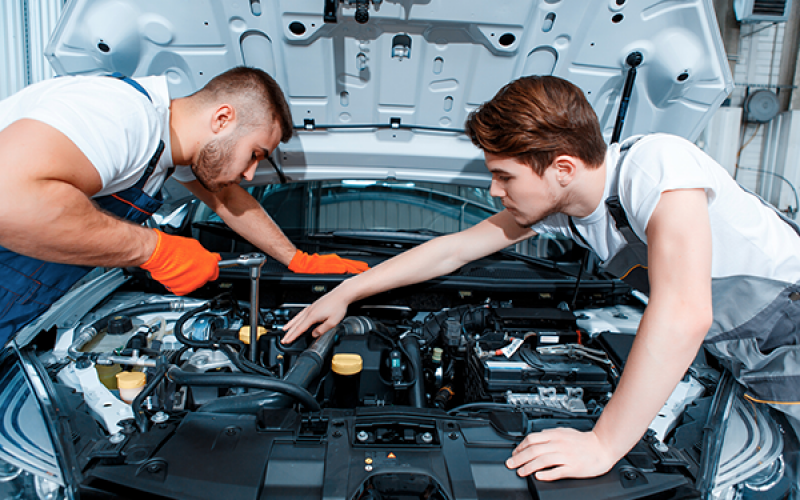All Categories
Featured

Your vehicle's engine is the heart of your vehicle, and keeping it in top problem is necessary for optimum performance and long life. Regular engine tune-ups are a great means to preserve your automobile's health, boost gas efficiency, and prevent expensive repair work later on. Whether you're a cars and truck fanatic or a person that simply wishes to maintain their vehicle running smoothly, these engine tune-up pointers will help you get the most out of your automobile.
- Change Flicker Plugs. Ignition system play an important role in starting your engine and making sure smooth burning. In time, spark plugs can become unclean or used out, causing misfires, reduced fuel performance, and harsh idling.
Throughout an engine tune-up, examine and change your ignition system if required. The majority of lorries require new spark plugs every 30,000 to 100,000 miles, depending on the kind. On a regular basis changing ignition system makes sure correct ignition and ideal engine performance.
- Examine and Clean the Air Filter. The air filter prevents dirt, dust, and particles from entering your engine. A clogged up or dirty air filter restricts air movement, triggering your engine to function tougher and melt more fuel.
Inspect your air filter throughout a tune-up and change it if it's dirty. In dusty environments or areas with hefty air pollution, you might need to transform the air filter much more frequently. A tidy air filter can enhance gas performance and prolong the life of your engine.
- Examine and Replace Belts and Pipes. Belts and tubes are vital for different engine functions, such as powering the alternator, water pump, and air conditioning system. Over time, these elements can crack, battle royal, or break, potentially causing breakdowns.
During a tune-up, check belts and pipes for signs of wear and change them if required. Replacing these components proactively can save you from pricey repairs and protect against unanticipated failings.
- Clean the Gas System. Your fuel system, including the fuel injectors and gas lines, can accumulate dirt and carbon deposits in time, lowering engine efficiency. Cleaning the gas system during a tune-up helps enhance efficiency and fuel economic situation.
You can utilize a fuel system cleaner or have an expert mechanic carry out a much more complete cleaning. This step is particularly important for older vehicles or cars and trucks that often drive in stop-and-go web traffic.
- Examine the Battery and Charging System. A healthy battery is important for beginning your engine and powering electric components. Throughout a tune-up, inspect the battery terminals for rust and make certain the links are limited.
Check the battery's voltage and change it if it shows indications of weak point. In addition, have the alternator and billing system examined to guarantee your battery remains charged throughout operation.
- Change the Engine Oil and Oil Filter. Oil modifications are an essential part of engine maintenance. Engine oil lubricates moving parts, reduces friction, and aids manage engine temperature. In time, oil comes to be contaminated and loses its efficiency.
During a tune-up, replace the engine oil and oil filter to keep your engine running efficiently. Follow your lorry's producer recommendations for oil kind and adjustment periods.
- Check the Air Conditioning System. The cooling system prevents your engine from overheating. Over time, coolant can degrade or become contaminated, lowering its efficiency.
Check the coolant level and problem throughout a tune-up, and flush and replace it if needed. Evaluate the radiator, water pump, and pipes for leakages or damages. A well-kept cooling system assists your engine run at the appropriate temperature level and stops overheating.
- Examine the Ignition System. A defective ignition system can trigger starting issues and decreased engine performance. Throughout a tune-up, check the ignition coils, representative cap, and rotor (if applicable) Change any kind of elements that show indicators of wear or damages to ensure smooth and reputable engine operation.
- Listen for Unusual Sounds. During a tune-up, take the chance to listen for any kind of unusual engine noises, such as knocking, ticking, or hissing. These audios can indicate underlying problems, such as shutoff issues, loose parts, or exhaust leakages. Resolving these troubles early can avoid more extensive damage.
- Use Top Quality Parts and Fluids. When carrying out an engine tune-up, always use premium components and fluids that meet your automobile manufacturer's specifications. Inexpensive or inaccurate parts can endanger your engine's performance and reliability.
Verdict: A Well-Tuned Engine is Key to Durability. Routine engine tune-ups are important for preserving your cars and truck's efficiency, efficiency, and integrity. By replacing worn elements, cleaning essential systems, and attending to prospective issues, you can keep your engine running efficiently for years ahead. Whether you're doing it on your own or relying upon a relied on auto mechanic, buying tune-ups is a clever means to safeguard your vehicle and enjoy a much safer, smoother trip.
Latest Posts
Reputable Expenses Door Solutions for Houses and Organizations
Discover Oil Changes & More: Complete Auto Care Solutions from Montclare Auto Repair
How Regular Auto Maintenance at Montclare Auto Repair Reduces Costs
More
Latest Posts
Reputable Expenses Door Solutions for Houses and Organizations
Discover Oil Changes & More: Complete Auto Care Solutions from Montclare Auto Repair
How Regular Auto Maintenance at Montclare Auto Repair Reduces Costs
